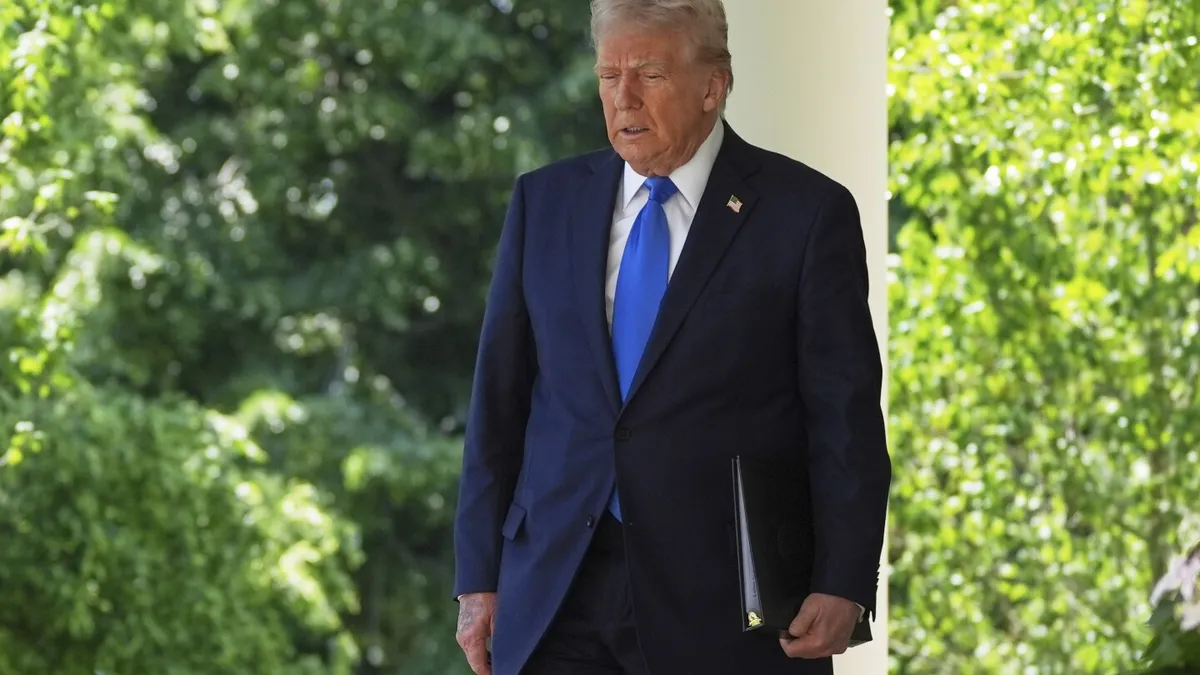
A federal judge has issued a significant ruling that prohibits the Trump administration from deporting Venezuelans from South Texas under an 18th-century wartime law known as the Alien Enemies Act (AEA). U.S. District Court Judge Fernando Rodriguez Jr. declared the President's invocation of this law as “unlawful.” This landmark decision marks the first time a judge has ruled against the use of the AEA in this context, specifically rejecting the Republican administration's claim that Venezuelan gang members are unlawfully invading the United States.
In his ruling, Judge Rodriguez, who was nominated by Trump in 2018, acknowledged that while the Executive Branch does have the authority to detain and remove aliens involved in criminal activity within the U.S., the President’s application of the AEA through a recent proclamation exceeds the law's intended scope. “The President’s invocation of the AEA through the Proclamation exceeds the scope of the statute and is contrary to the plain, ordinary meaning of the statute’s terms,” Rodriguez stated.
In March, President Trump issued a proclamation asserting that the Venezuelan gang Tren de Aragua was invading the U.S. He claimed to possess special powers to deport immigrants identified as gang members without the standard judicial processes. However, Rodriguez found that the activities attributed to Tren de Aragua did not meet the legal definition of an invasion or “predatory incursion” as required by the AEA.
The Alien Enemies Act has a historical precedent, having been invoked only three times prior in U.S. history, with the most recent instance during World War II, when it was used to intern Japanese-Americans. This ruling is noteworthy as it represents the first formal permanent injunction against the Trump administration's utilization of the AEA, with the court contending that the President is misapplying the law.
Lee Gelernt, a lawyer for the American Civil Liberties Union (ACLU), who argued the case, emphasized that “Congress never meant for this law to be used in this manner.” Rodriguez echoed this sentiment, noting that the law was designed for specific wartime contexts, such as during the World Wars and the War of 1812.
The President had claimed that Tren de Aragua was acting under the direction of the Venezuelan government. However, the judge concluded that the proclamation did not substantiate any organized, armed threat entering the U.S. to conquer or control American territory. “Thus, the Proclamation’s language cannot be read as describing conduct that falls within the meaning of ‘invasion’ for purposes of the AEA,” Rodriguez clarified.
If the Trump administration decides to appeal this ruling, the case will likely proceed to the New Orleans-based 5th U.S. Circuit Court of Appeals, known for its conservative stance on immigration matters. The administration has previously turned to appellate courts, including the U.S. Supreme Court, in similar cases challenging its expansive interpretation of presidential powers.
The Supreme Court has previously ruled that migrants accused of being gang members are entitled to “reasonable time” to contest their deportation, although the court has not defined what constitutes a reasonable duration. Should the 5th Circuit rule unfavorably for the administration, it is likely that an emergency appeal would be filed with the Supreme Court, which could take months to resolve.
This Texas case is one among many legal challenges that have arisen following Trump's proclamation. The ACLU initially filed a lawsuit in Washington, D.C., to prevent deportations, leading to a temporary halt ordered by U.S. District Judge James E. Boasberg. This order mandated the administration to return planes that had already left with detainees bound for El Salvador, a directive reportedly disregarded by the administration. The Supreme Court intervened again recently to halt deportations from North Texas, where further flights to El Salvador were being prepared.
As the legal battle continues, the ramifications of this ruling will undoubtedly have lasting implications for immigration policy and the use of the Alien Enemies Act in the United States.